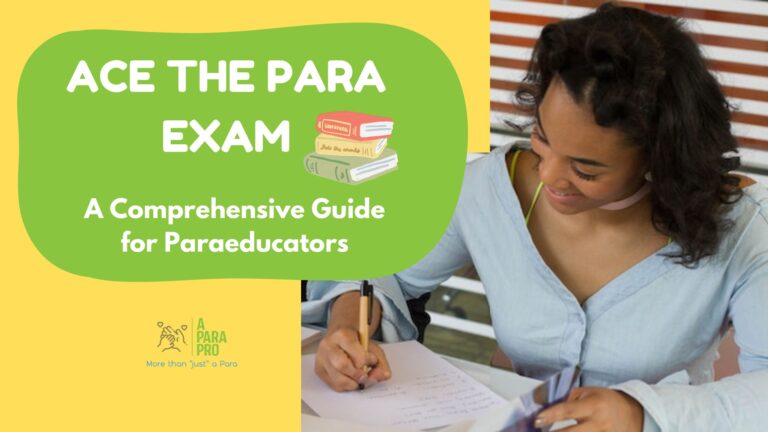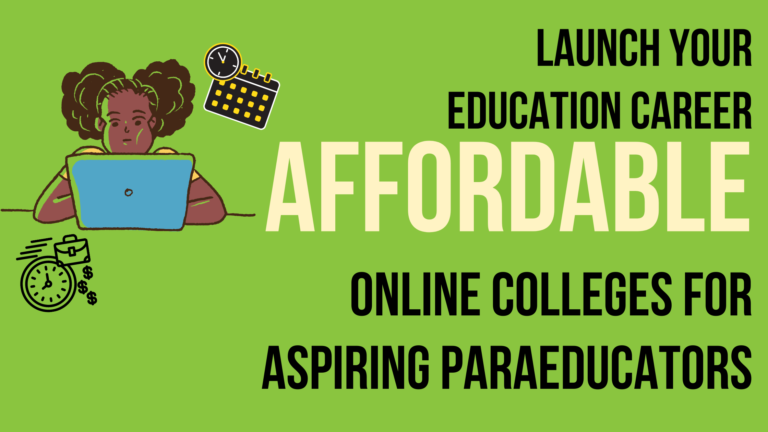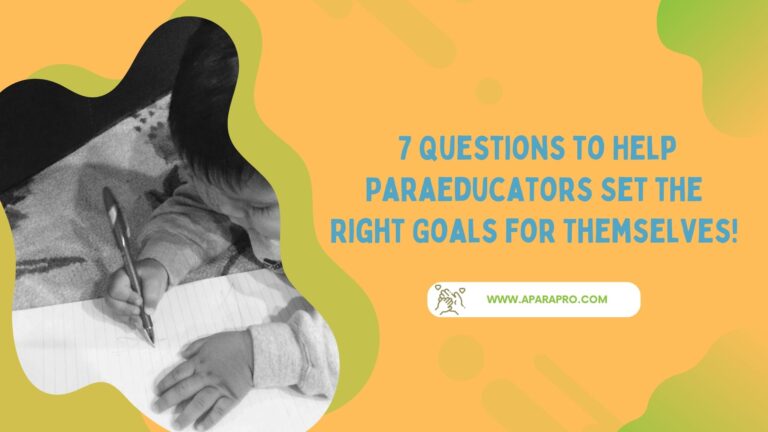The Power of Networking for Paraeducators: Building Strong Professional Relationships
As a paraeducator, your role is integral to the success of students and the overall classroom environment. While your primary focus is often on supporting students, building strong professional relationships within your school community is just as crucial. These connections can enhance collaboration, improve communication, and ultimately contribute to a more effective and rewarding work experience.

Today, we’ll explore why professional relationships matter, the key relationships you should focus on, and strategies for building and maintaining these connections as a paraeducator.
Why Professional Relationships Matter
Strong professional relationships are the backbone of a positive and productive work environment. For paraeducators, these connections are vital for several reasons:

- Enhanced Collaboration: Working closely with teachers and staff allows for better coordination and consistency in supporting students.
- Support Network: Building relationships with colleagues provides a support system where you can share experiences, seek advice, and navigate challenges together.
- Increased Visibility: Positive relationships with administrators and other staff can lead to recognition of your contributions and open doors for professional growth.
- Student Success: When paraeducators and teachers work together effectively, students receive more consistent support, leading to better outcomes.
Key Relationships for Paraeducators
Building strong relationships with key individuals in your school community is essential. Here are the primary relationships to focus on:

- Teachers:
- Your partnership with teachers is crucial for providing seamless support to students. Effective communication and collaboration with teachers help ensure that you’re aligned in your approach and can jointly address student needs.
- Other Paraeducators and Staff:
- Connecting with fellow paraeducators and other school staff creates a sense of camaraderie and provides opportunities for collaboration. Sharing strategies and resources with colleagues can enhance your effectiveness in the classroom.
- Administrators:
- Building a positive relationship with school administrators can lead to greater visibility and access to resources. Administrators who understand your role are more likely to advocate for you and support your professional development.
Strategies for Building Strong Professional Relationships
Now that we understand the importance of these relationships, let’s look at some practical strategies for building and maintaining them.

- Effective Communication:
- Be Clear and Concise: Whether you’re sharing student progress or discussing classroom activities, make your communication straightforward and easy to understand.
- Active Listening: Show that you value others’ perspectives by listening carefully, asking questions, and acknowledging their input.
- Consistent Communication: Regular check-ins with teachers, staff, and administrators help keep everyone on the same page and strengthen your connections.
- Collaboration and Teamwork:
- Be Proactive: Take the initiative to offer help, suggest ideas, and contribute to classroom activities. This shows that you’re invested in the success of the team.
- Share Credit: Recognize and celebrate the contributions of others. Acknowledging your colleagues’ efforts builds trust and fosters a positive work environment.
- Be Flexible: Adaptability is key in a collaborative setting. Be willing to adjust your approach to meet the needs of the team and the students.
- Building Trust and Respect:
- Reliability: Consistently follow through on your commitments. Being dependable earns you the trust and respect of your colleagues.
- Confidentiality: Respect the privacy of your students and colleagues by keeping sensitive information confidential.
- Professionalism: Always conduct yourself in a manner that reflects positively on you and your role within the school.
Maintaining and Growing Relationships
Building relationships is just the beginning—maintaining and growing them requires ongoing effort. Here’s how to keep your professional connections strong:

- Continuous Engagement:
- Regular Follow-ups: Keep in touch with your colleagues by regularly checking in. This shows that you care about maintaining the relationship.
- Celebrate Successes: Acknowledge and celebrate the achievements of your colleagues, whether it’s a successful project or a personal milestone.
- Personal and Professional Growth:
- Shared Learning: Attend professional development workshops together, share insights from training sessions, and collaborate on new initiatives.
- Seek Feedback: Regularly ask for feedback from your colleagues to improve your collaboration and communication skills.
- Handling Challenges:
- Address Issues Directly: If a conflict arises, address it calmly and professionally. Focus on finding a solution rather than placing blame.
- Seek Support: If you’re struggling with a relationship, seek advice from a trusted colleague or administrator. They can provide guidance and help you navigate the situation.
Conclusion
Strong professional relationships are essential for paraeducators who want to succeed in their roles and make a positive impact on students. By focusing on effective communication, collaboration, and trust-building, you can create and maintain connections that will support your growth and the success of your students.
As you continue in your career, remember that the relationships you build today will serve as a foundation for your future growth. Stay connected, keep learning, and continue to contribute to a positive and collaborative school environment.
PIN FOR LATER









